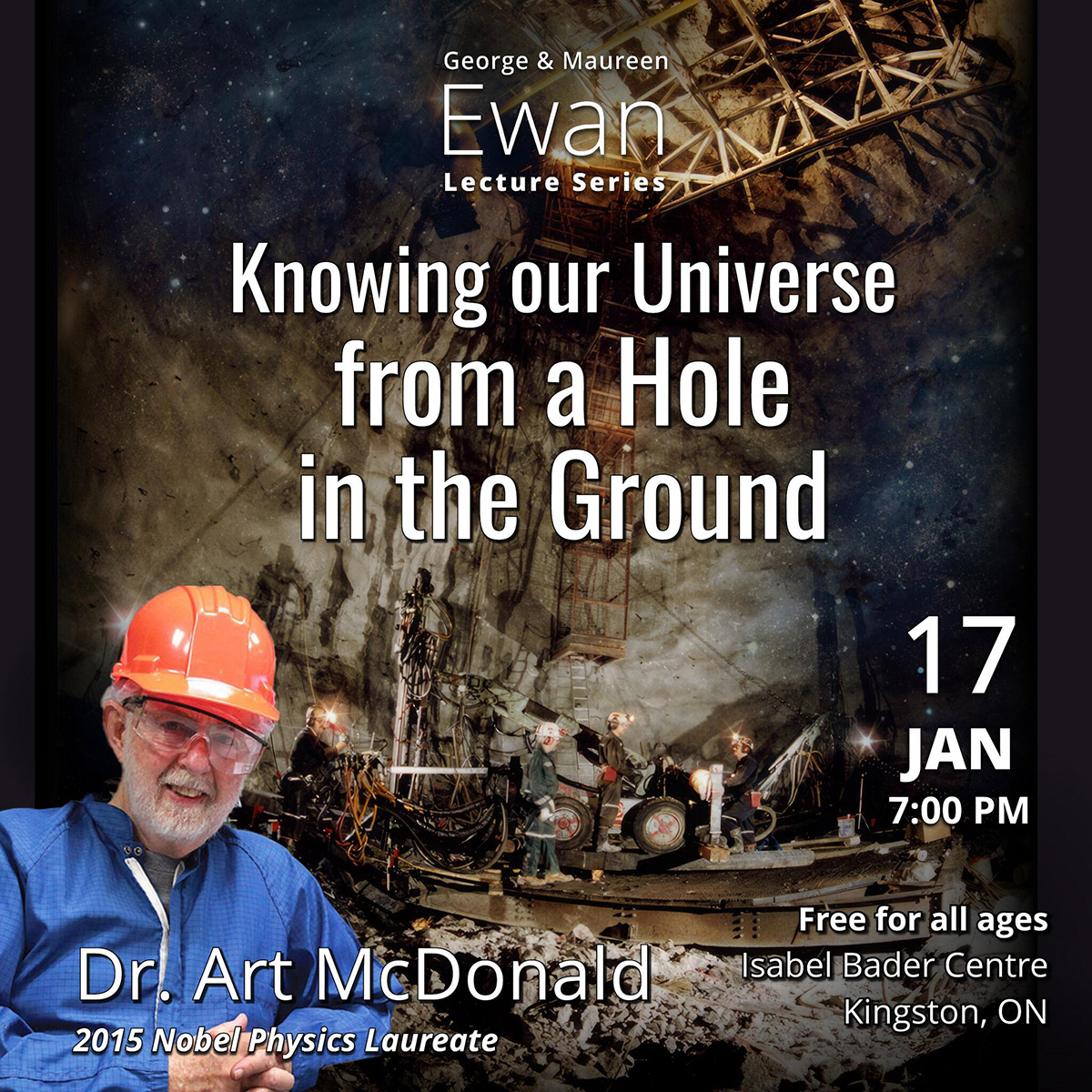Knowing our Universe from a Hole in the Ground
Date
Wednesday January 17, 20247:00 pm - 8:30 pm
Art McDonald
Queen's University
Join us for a free event with our own Dr. Art McDonald. Starting at 7:00pm, Dr. McDonald will give an exciting talk about how we come to learn about the history of the Universe by going deep underground, and how this history comes to rely on various mysterious things like dark matter and neutrinos.
Dr. Art McDonald is the Gordon and Patricia Gray Chair in Particle Astrophysics, emeritus, at Queen's University. He is also a co-recipient of the 2015 Nobel Prize in Physics and the 2016 Breakthrough Prize in Physics for the discovery that neutrinos have mass.
Event is now closed.

George & Maureen Ewan Lecture Series
This talk is part of the George & Maureen Ewan Lecture Series. Dr. Ewan focused on nuclear physics and sub-atomic research, particularly the solar neutrino problem as a co-founder of the Nobel Prize-winning Sudbury Neutrino Observatory (SNO) experiment. With his work recognized at the highest level, Dr. Ewan pushed ahead with a goal of influencing the next generation of scientists here at Queen’s, remarking that “it is vital that we scientists make our work accessible to the general public.” His wife, Maureen, agreed, saying “his work is so remote from what most people would find comprehensible.” Effective communication skills are vital to successful research. As he put it, scientists have so much of value to share with the world. “As a rule, scientists don’t inform the educated public, there are people who work on exciting experiments who could give very good talks. My dream is to have them come to Queen’s to give lectures on the state of their experiments and especially about their results, and to do it in a way that people without PhDs can understand.”
This is why Dr. Ewan and his wife decided to donate $100,000 to Queen’s to create the George & Maureen Ewan Lecture Series, which will support seminar and lecture programs designed to increase scientific discourse and culture within the Particle Astrophysics community at Queen’s University.
Dr. Ewan’s gift gives the department access to $10,000 a year until the fund is depleted. A $10,000 annual budget will make it possible for the department to look farther afield for guest lecturers and host them for a longer stay. “The idea is to have the guest lecturers stay for a while and spend some quality time with the students, interacting with them and working with them in the labs,” says Dr. Tony Noble, former SNOLAB director and the current Scientific Director of the Arthur B. McDonald Canadian Astroparticle Physics Research Institute.
The McDonald Institute and Queen’s University are very excited about the opportunities offered by The Ewans’ generous endowment, and look forward to organizing public lectures that will benefit researchers in the Physics department, and the wider Queen’s and Kingston communities!
Upcoming Events
Apr
04
Friday

On the Birth of Stars in the Nearby Universe
Departmental - On the Birth of Stars in the Nearby Universe
 Queen's 2015 Nobel Prize in Physics
Queen's 2015 Nobel Prize in Physics